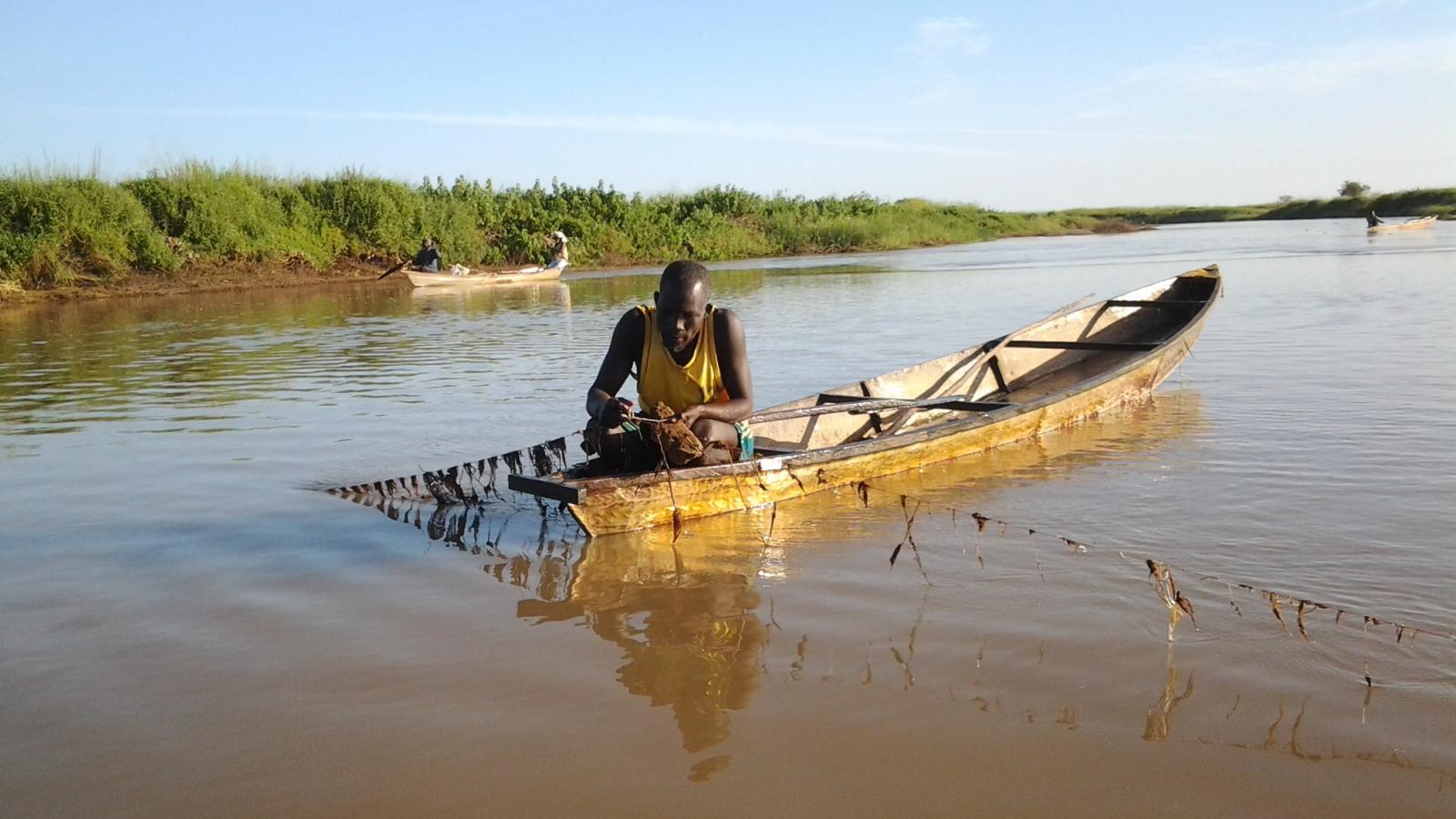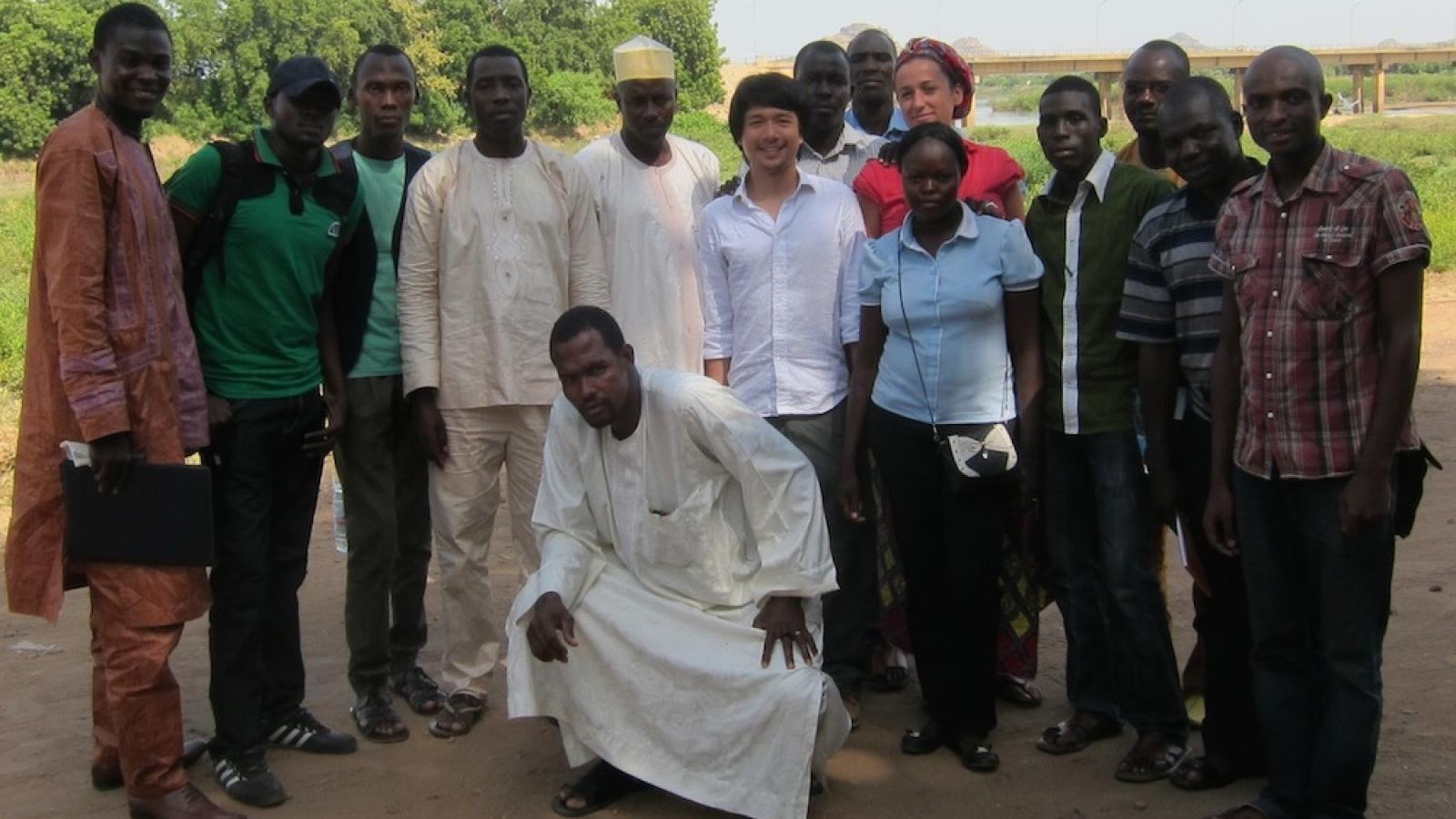Regime Shifts in African Floodplains
Modeling Regime Shifts in the Logone floodplain (MORSL)
This interdisciplinary research project focused on the impact of human activities and climate change on African floodplains. African floodplains are an excellent example of coupled human-natural systems because they exhibit strong interactions among multiple social, ecological, and hydrological systems. The intra-annual and inter-annual variations in the area, depth, and duration of seasonal flooding have direct and indirect impacts on ecosystems and human lives and livelihoods. The goal was to develop an integrated computer model that simulates the dynamic couplings among social, ecological and hydrological systems of the Logone floodplain in Cameroon. The model will allow us to simulate the impacts of climate change scenarios and human modifications of the landscape on the social, ecological, and hydrological systems. Fishermen in the Logone floodplain have been modifying the floodplain's hydrology by constructing thousands of individually owned fish canals. The cumulative effect of these canals may equal the impact of large-scale dams.
The devastating impact of large-scale dams on African floodplains has been well documented, but what is less clear is how smaller, slower changes like the fish canals may result in regime shifts that have equally disastrous consequences. If the floodplain is characterized by critical transitions, the gradual increase in fish canals may result in a sudden and catastrophic transition equivalent to the impact of large-scale dams. The integrated computer model will enable researchers to examine the nature of the regime shift. The project brought together a team of researchers from a broad range of disciplines and used a transdisciplinary approach to investigate coupled human and natural systems using a combination of field research, remote sensing analysis, and modeling.
Publications
Jung, Hahn Chul, Doug Alsdorf, Mark Moritz, Hyongki Lee, and Sara Vassolo. 2011. Analysis of the relationship between flooding area and water height in the Logone floodplain. Physics and Chemistry of the Earth 36(7-8):232-240. PDF
Film
Ahmadou, Mouadjamou and Sarah Laborde 2017 Fishing canals of the Logone Floodplain in Cameroon. Voices. 2017 (3): http://voices.uni-koeln.de/2017-3/fishingcanals


